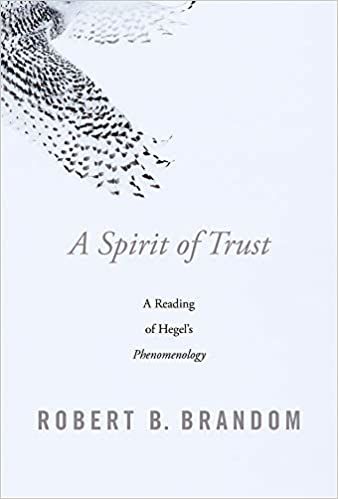Mit dem Anneliese Maier-Forschungspreis der Alexander von Humboldt Stiftung werden Spitzenkräfte aus den Geistes- und Sozialwissenschaften aus dem Ausland ausgezeichnet, deren bisherige wissenschaftliche Leistungen in ihrem Fachgebiet international anerkannt sind. Preisträger im Jahr 2015 wurde Robert Brandom (Univ. of Pittsburgh). Von 2015 bis 2019 stellte Brandom sein gesamtes Manuskript in der Vorlesungs- und Seminarreihe "A Spirit of Trust" am Institut für Philosophie und des FAGI vor und diskutierte mit den Zuhörern. Die Vorträge können unten stehend nachgehört werden.
Robert B. Brandom
wurde 1950 in den USA geboren und ist Distinguished Professor für Philosophie an der University of Pittsburgh. Brandom studierte Mathematik, Kunstwissenschaften und Philosophie und wurde 1975 an der Princeton University, USA, promoviert. Anschließend wechselte er zunächst als Assistant Professor nach Pittsburgh. 2002 war er als Fellow an der Stanford University, USA, und 2006 am All Souls College, Oxford in Großbritannien. Seit 2000 ist Robert B. Brandom Fellow der American Academy of Arts and Sciences.
Zum Nachhören
Vorlesungsreihe 2015 bis 2019
Robert Brandom erklärt, was wir heute noch von Hegel lernen können. In seiner systematischen Interpretation der hegelschen Phänomenologie des Geistes bringt Brandom Hegel in einen fruchtbaren Dialog mit aktueller Handlungstheorie, Metaphysik, Sozialontologie und Sprachphilosophie. Brandom zeigt unter anderem, wie Hegel schon lange vor Wittgenstein nicht nur das grundlegende Problem des Regelfolgens klar gesehen hat, sondern auch eine Lösung vorschlägt, die auf der sozialen Natur von Normen beruht.
Die Vorlesungsreihe begann im Dezember 2015. Sie können hier die Vorträge nachhören.
A Spirit of Trust
Teil I – Knowing and Representing Reading (between the lines of) Hegel’s Introduction to the Phenomenology
Einführung – Video Recording
December 14, 2015 – Video Recording
Conceptual Realism and the Semantic Possibility of Knowledge
December 15, 2015 – Video Recording
Representation and the Experience of Error: A Functionalist Approach to the Distinction between Appearance and Reality
December 16, 2015 – Video Recording
Following the Path of Despair to a Bacchanalian Revel: The Emergence of the Second, True, Object
Teil II – Mediating the Immediate: The Consciousness Chapters of the Phenomenology
June 27, 2016 – Video Recording
Immediacy, Generality, and Recollection
June 28, 2016 – Video Recording
Understanding the Object/Property Structure in Terms of Negation
June 29, 2016 – Video Recording
‘Force’ and Understanding—From Object to Concept
June 30, 2016 – Video Recording
Infinity, Conceptual Idealism, and the Transition to Self-Consciousness
Teil III – Norms, Self-Consciousness, and Recognition
Einführung – Video Recording
May 30, 2017 – Video Recording
The Structure of Desire and Recognition: Self-Consciousness and Self-Constitution
May 31, 2017 – Video Recording
From Subordination, through Autonomy, to Mutual Recognition: Stages in the History of the Metaphysics of Normativity
June 1, 2017 – Video Recording
The Fine Structure of Recognition
June 2, 2017 – Video Recording
The Allegory of Mastery: Semantic and Pragmatic Lessons
Teil IV – Hegel on Agency
June 4, 2018 – Video Recording
Some Post-Davidsonian Elements of Hegel’s Theory of Agency
June 5, 2018 – Video Recording
Agency, Intention, and the Expressive Determination of Content
June 7, 2018 – Video Recording
Heroism and Magnanimity: The Post-Modern Form of Self-Conscious Agency
Teil V – Hegel on the Historicity of Normativity
June 3, 2019 – Video Recording
Epochs of Geist: On Beyond Traditional Normativity as Immediate Sittlichkeit
June 4, 2019 – Video Recording
Modernity, Alienation, and Language
June 5, 2019 – Video Recording
Genealogy and Magnanimity: The Allegory of the Valet
June 6, 2019 – Video Recording
Confession and Forgiveness, Recollection and Trust
